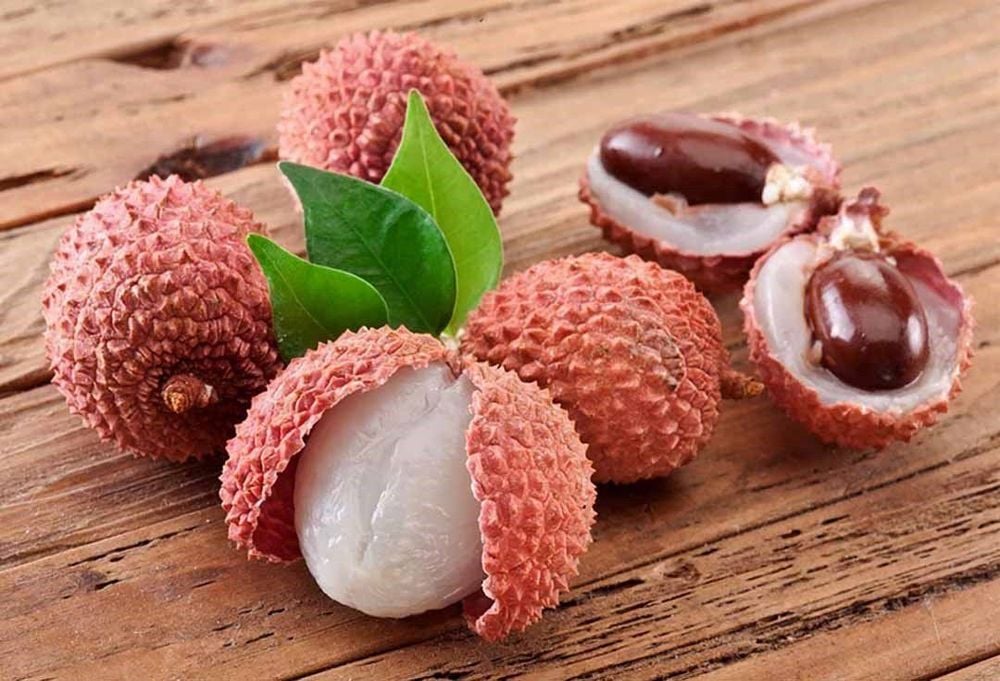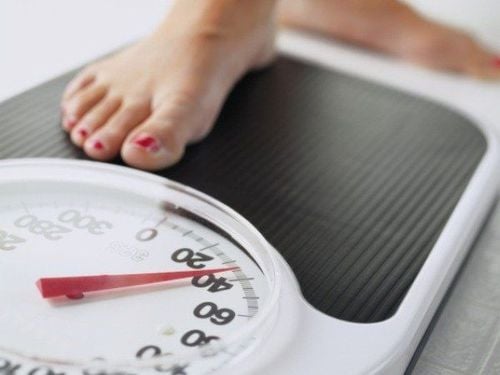This is an automatically translated article.
When hungry, eating low calorie foods like fruits and vegetables is one of the healthiest ways to reduce cravings. Low-calorie foods and vegetables contain lots of water, vitamins, minerals, and compounds that have health benefits. Therefore, you can rest assured when using it every day.
Although there is no scientific evidence for "lowest calorie" foods, there are foods that are said to burn more calories than they provide, especially foods that are low in calories, high in fiber and protein. . In a Pomona College study, 20% of the calories in a whole meal were burned during digestion, compared with just 10% in a processed meal. If you are trying to reduce your daily calorie intake, incorporating low calorie foods and vegetables can help you achieve your weight loss goals and live a healthier life..
1. What are low-calorie foods?
Foods are considered low calorie when they require the body to produce more energy to digest than they provide. This causes foods like vegetables and low-calorie fruits to be listed on this list. Even for many foods, the difference in calories they provide compared to the number of calories the body needs to digest them is negative.
2. Some foods and vegetables are low in calories to support fat loss
“What to eat to lose weight” is a question that many of us are wondering. Currently, when foods are increasingly diverse and sold on social networks, choosing clean foods to support weight loss is not easy. Therefore, many people have shifted their food consumption trend to low-calorie foods, in order to minimize the amount of energy that the body receives to reach a reasonable weight. Here are 50 low-calorie foods that support effective weight loss.
2.1. Low Calorie Fruits Fruits are a great way to add some nutrients to the body without the many calories.
Apples: Apples are rich in vitamin C, a rich source of dietary fiber, which supports gut health. One small apple contains only 86 calories. Lychee : Lychee is a food source of vitamin C. It is low in calories, one lychee fruit contains just under 7 calories. Papaya: Papaya is an excellent source of vitamin C. A 100-gram serving provides nearly 70% of an adult's recommended daily vitamin C needs with just 43 calories. Grapefruit: Grapefruit is a favorite fruit of many people. A slice of grapefruit contains only 10 calories. Strawberries: Strawberries are a good source of vitamin C and manganese as well as fiber and antioxidants. One strawberry contains only 6 calories. Raspberries: Raspberries contain a lot of vitamin C, manganese and vitamin K. One bowl of raspberries (150g) is equivalent to 78 calories. Apricots: One raw apricot (about 35g) is about 16 calories. Cherries: Cherries are rich in vitamins and minerals, including vitamin C, potassium, and fiber. A bowl of cherries (150g) contains only 95 calories. Watermelon: Watermelon is rich in vitamins A, C and a good source of vitamin B6, 10 watermelons contain only 37 calories.

Vải thiều là một loại thực phẩm trong danh sách củ, quả, rau ít calo
2.2. Low-calorie vegetables These fresh, low-calorie foods add flavor to salads or meals. Try incorporating more fiber-rich vegetables into your menu to create complete and nutritious meals:
Arugula: One serving of arugula (20g) contains about 5 calories. It is rich in calcium, iron and potassium. Radishes: Radishes are a good source of potassium, folate and vitamin C, with a serving of radish slices (116g) containing only 18 calories. Asparagus: Asparagus is a good source of vitamin K, vitamin A and vitamin E, and iron. A medium top of asparagus is about 3 calories Green or black olives: Olives provide plenty of calcium, vitamin E and iron, with 15g of olives containing only 22 calories. Chili peppers: An 85g serving of chili peppers contains only 25 calories. Besides, all peppers are excellent sources of vitamins C and B6. Tomatoes: Tomatoes are an excellent source of the antioxidant lycopene, as well as being high in vitamin C, potassium, folate and vitamin K. A 126g serving contains 25 calories Celery: The whole stalk of celery contains less than 6 Calories. Celery is rich in fiber and is especially high in antioxidants, including vitamin C and flavonoids. Lettuce: Lettuce is a food rich in vitamins A and K as well as folate. One serving (72g) of chopped lettuce contains only 10 calories. Dill: A good source of vitamins K, C, fiber and potassium. A small handful of dill contains only 36 calories. Watercress: Watercress contains many nutrients, including vitamin A, vitamin C, vitamin E and vitamin K. It is a good source of calcium. Due to its high water content, watercress is very low in calories, with a bowl of soup (34g) of chopped watercress containing just under 4 calories. Cucumbers: Cucumbers are high in vitamin K. One serving of sliced cucumbers (about 120g) contains only 18 calories. Beets: Beets are a rich source of fiber, vitamin C, and folate. One 80g beetroot is about 34 calories Zucchini (zucchini): In addition to being a food rich in potassium, fiber and vitamin C, a serving of zucchini (95g) also contains only 20 calories. Clover Sprouts: These tiny sprouts are rich in vitamin K, zinc, copper and B vitamins. One serving (33g) also contains less than 8 calories.
2.3. Other foods The following foods are all high in vitamins and minerals but low in calories.
Pumpkin: Pumpkin may seem like a high-calorie food, but in reality, pumpkin has only 30 calories per 116-gram serving. It is also a rich source of vitamin A, vitamin C, vitamin E and vitamin B6. Red Cabbage: One serving (70g) of chopped red cabbage contains just under 22 calories. Red cabbage is a wonderful source of vitamins, including vitamin A, vitamin C and vitamin K. White mushrooms” White mushrooms are a great source of many nutrients, including vitamin D, zinc and antioxidants. One serving (35g) of sliced white mushrooms contains just under 8 calories Cauliflower: Cauliflower is a good source of vitamin C. One serving (100g) of cauliflower contains only 27 calories and 5g of carbohydrates. Okra: Okra is rich in magnesium, folate and vitamin A, with one serving (100g) containing only 33 calories. Brussels sprouts: Rich in fiber, vitamin K and vitamin C. A 100g bowl of brussel sprouts soup contains only 39 calories. Spinach (spinach or spinach): Spinach is well known as a rich source of iron. It also contains vitamin A, manganese, vitamin C and vitamin B6. A serving (25g) of spinach contains only 6 calories Green beans: Green beans are a rich source of nutrients, including B vitamins, vitamin K and vitamin C. A 100g cup of chickpeas contains only 31 calories. Kale: Kale contains fiber, antioxidants, calcium, vitamins C, K, and iron among other nutrients. A 25g serving of kale has just under 9 calories. Carrots: Carrots are the perfect snack. Packed with vitamin C, vitamin K, and B vitamins, one small carrot (about 5.5 inches in diameter) contains only 20 calories. Jicama (Mexican potato): This root vegetable is packed with vitamins and minerals, from vitamin C, fiber, iron to potassium and manganese. A 100g serving has only 38 calories Rutabaga: This root vegetable is an excellent source of antioxidants like vitamin C, calcium, potassium, magnesium and vitamin E. A serving (140g) contains just over 50 calories Cotton Broccoli: Broccoli is a great fiber-rich food, packed with vitamins and minerals, including vitamins A, C, E, K and B. Broccoli is also high in folate, calcium and magnesium. A 90g serving of broccoli contains just over 30 calories Onions: A 100g serving of red or white onions contains between 40 and 45 calories. Onions are a rich source of vitamins, including vitamin C and vitamin B6. Leeks: A great addition to soups, one standard-sized leek has only 55 calories. Leeks are a good source of calcium, iron, and vitamins C and B. Radishes: Radishes are rich in vitamins C, B6, potassium, calcium and fiber, with one serving (130g) containing only 36 calories.

Thực phẩm, rau ít calo phải kể đến đó là củ cải
Spices and flavorings: Some foods are lower in calories than people think and can add a lot of flavor to dishes. This reduces the “temptation” to add heat, oils and sauces for flavor. Marmite: This is one of the lowest-calorie flavorings. Marmite has been popular in the UK for a long time and is gaining popularity in the US in recent years. Marmite contains only 11 calories per teaspoon and is a rich source of B vitamins. Vegetable broth: Surprisingly, a bowl of vegetable broth or meat broth contains only 12 calories. There isn't much nutritional value in the broth, but it can help fill people up or form the base of a nutritious vegetable soup. Hot Sauce: Hot sauce, such as Tabasco can add a lot of flavor to dishes. They are especially low in calories, with one teaspoon containing only 5 calories. Miso Broth: Miso soup contains only 40 calories. When adding fiber-rich vegetables or protein-rich tofu, its nutritional benefits can be enhanced. Garlic: Famous for its strong and pungent flavor, garlic is low in calories. One clove of garlic contains just under 5 calories and it is a good source of manganese, vitamin B6 and vitamin C. Mustard: Another favorite flavor for salad dressings, mustard contains only about 9 calories for a small tube Unsweetened cocoa powder: Many people may be surprised to learn that unsweetened cocoa powder contains only approx. 12 Calories Lemon: This citrus fruit is a great vitamin C rich food for salad dressings. About 30 ml of lemon juice or lime juice contains less than 7 calories. Beverages” Many drinks, such as juices, contain more calories than we imagine. Anyone trying to lose weight should pay attention to the calories in the fluids they drink. Coffee: Black coffee contains just over 2 calories per cup if we don't add anything like sugar, cream or milk. Tea: Black tea contains just over 2 calories per cup (about 60 ml)) as long as we don't add milk to it. Other teas such as herbal teas such as green tea, chamomile and mint also have a corresponding calorie content. There are many nutritious foods that provide many vitamins and minerals but are low in calories, or even contain no calories (calculated on the difference of the number of calories they provide compared to the number of calories that the body produces to digest). Therefore, people who are trying to lose weight should use low-calorie foods, fruits, and vegetables for the best results.
Please dial HOTLINE for more information or register for an appointment HERE. Download MyVinmec app to make appointments faster and to manage your bookings easily.













